Loepa obscuromarginata
|
|
Updated as per Two new Loepa species from Tibet and Shaanxi, China
(Lepidotera: Saturniidae)
in Nachr. entomol. Ver. Apollo, N.F. 24 (4): 161-165 (2003)
|
Loepa obscuromarginata
Naumann, 1998
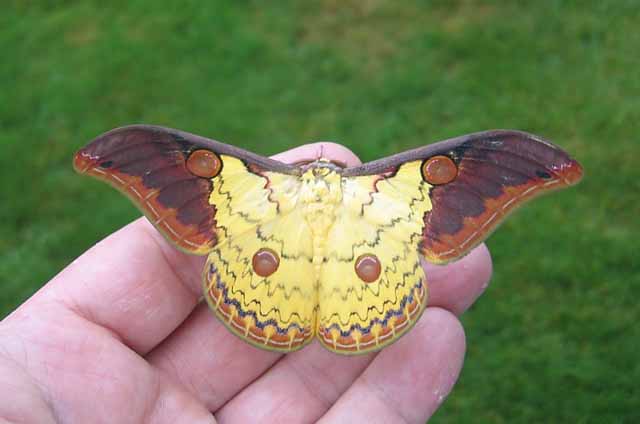
Loepa obscuromarginata male, courtesy of Alan Marson
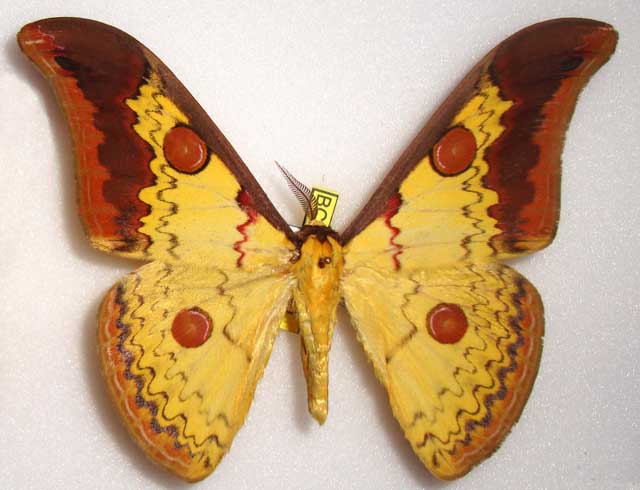
Loepa obscuromarginata male, courtesy of Viktor Sinjaev.
TAXONOMY:Superfamily: Bombycoidea, Latreille, 1802
Family: Saturniidae, Boisduval, [1837] 1834
Subfamily: Saturniinae, Boisduval, [1837] 1834
Tribe: Saturniini, Boisduval, [1837] 1834
Genus:Loepa, Moore, 1860
|
MIDI MUSIC
"Asian Spring Blossoms"
ON.OFF
<bgsound src="AsianSpringBlossoms.mid" LOOP=FOREVER>
|
DISTRIBUTION:
The Loepa obscuromarginata moth
flies in Guangxi province, Dayiao Mts., Jinxiu, and also in
Guangdong,
China. It has also been recorded in
the provinces of Jiangxi, Hunan, Hubei and Henan.
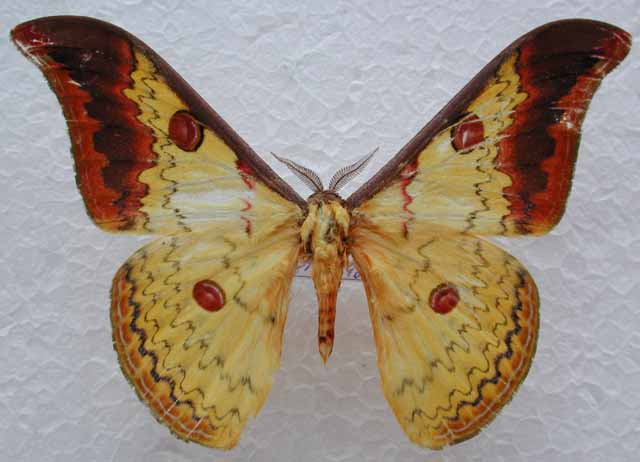
Loepa obscuromarginata (male), China, courtesy of
Eric van Schayck.
Loepa obscuromarginata is signifiacantly larger than L. sinjaevi, and the forewing ocellus is tangent to
the costa for about 1/5 of its circumference. The much smaller L. sinjaevi has a forewing ocellus that is
slightly separated from the costa.
FLIGHT TIMES AND PREFERRED FOOD PLANTS:
I suspect this
species has multiple broods. Theere is at least one flight in August
and September, confirmed by GNNNR. Cissus, grape and Virginia creeper would
likely prove to be suitable hosts.
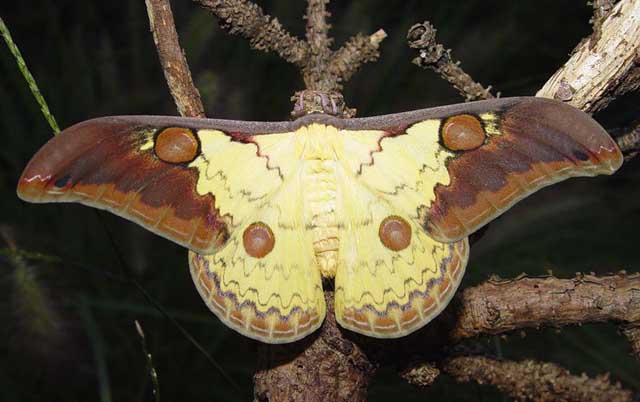
Loepa obscuromarginata, male,
courtesy of Martin Jagelka.
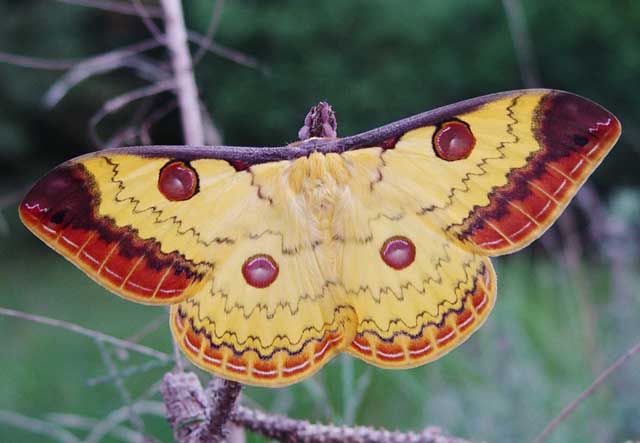
Loepa obscuromarginata, female,
courtesy of Martin Jagelka.
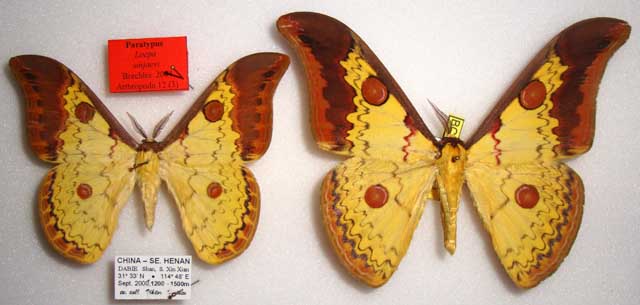
Loepa sinjaevi (left) and Loepa obscuromarginata males (right),
courtesy of Viktor Sinjaev.
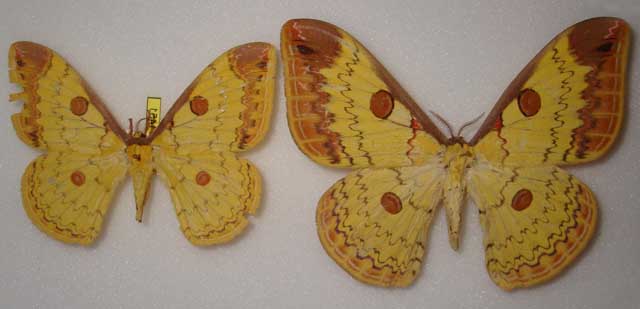
Loepa sinjaevi (left) and Loepa obscuromarginata females (right),
courtesy of Viktor Sinjaev.
Of the larvae depicted below, Alan Marson writes, "They are feeding
on Parthenocissus tricuspidata, what we call "Boston Ivy" in
the UK. They refused Cissus and my Grape Vine is not yet in leaf.
I notice that some contributors are referring to Parthenocissus
as "Woodbine". In the UK "Woodbine" is a common name for wild
Honeysuckle (Lonicera). The best Parthenocissus for
feeding larvae here is P cinquefolia which is commonly
referred to in the UK as 'Virginia Creeper'".
Virginia creeper is very easy to start from cuttings.
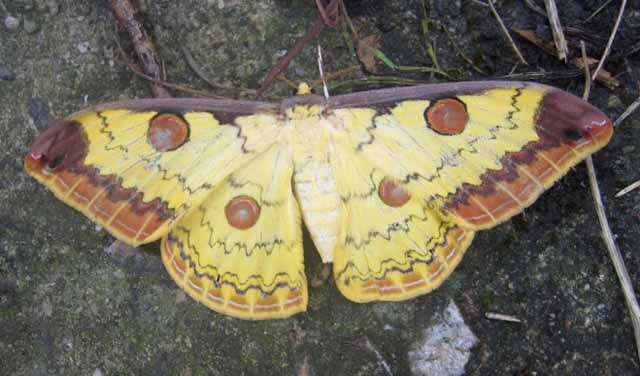
Loepa obscuromarginata female, courtesy of Alan Marson
ECLOSION, SCENTING AND MATING:
Females, whose forewings
lack the wider darker outer margins of the males, call at night. Males,
with their more falcate wings, fly into the wind and track the
pheromone plume with their sophisticated antennae.
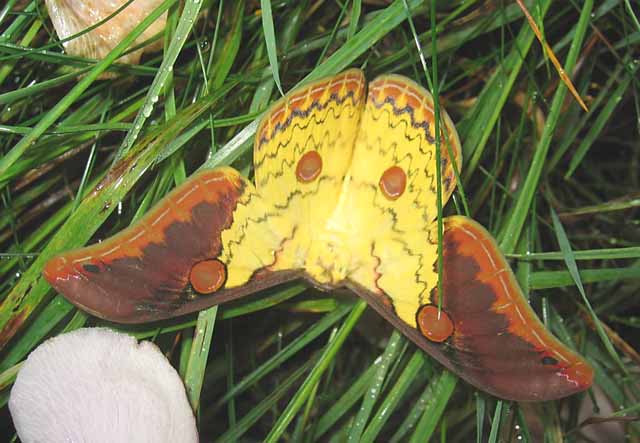
Loepa obscuromarginata male, courtesy of Alan Marson
EGGS, LARVAE, COCOONS AND PUPAE:
Larvae, typical of
Loepa, are dark with lighter triangular patches on the sides
as they move into third instar.
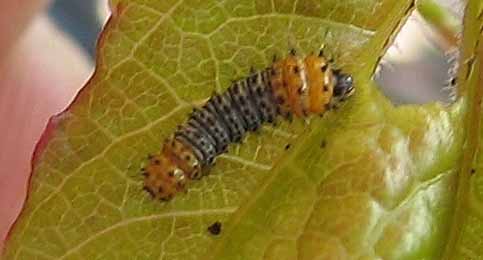
First instar courtesy of Alan Marson.
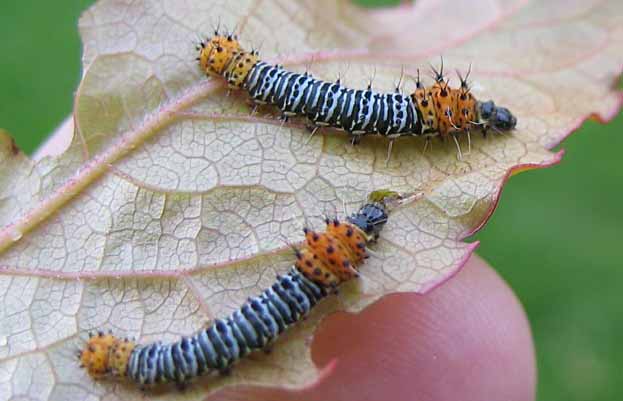
Second instar courtesy of Alan Marson.
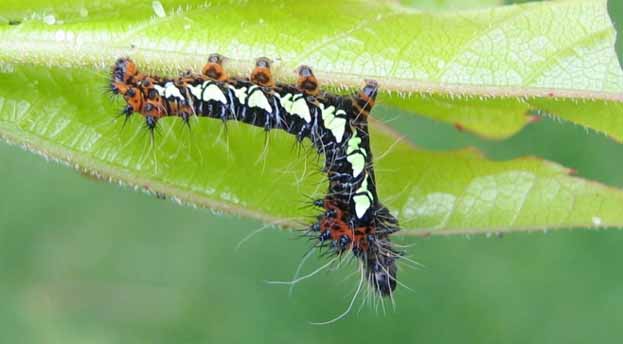
Third instar courtesy of Alan Marson.
Alan sent me a series of fourth instar larval
images.The pose, with the head and thorax stretched forward,
reminds me somehow of Chinese dragons.
The body is beginning to take on some bulk in this image. |
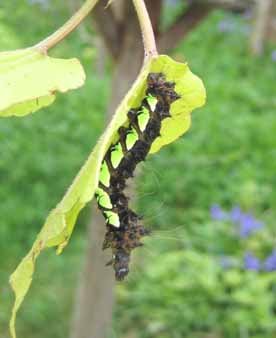 |
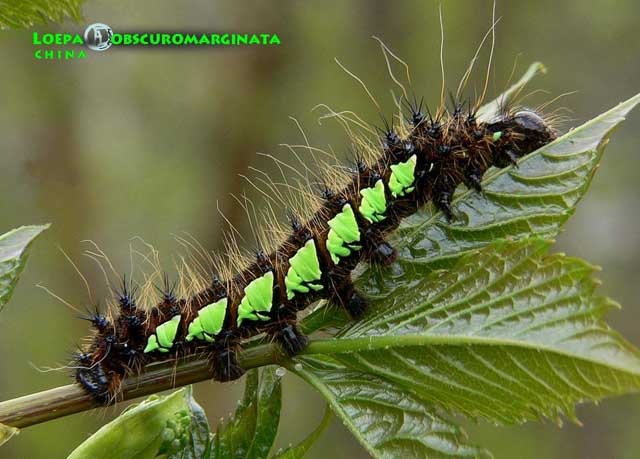
Loepa obscuromarginata fourth instar, courtesy of
Anatolij Kulak.
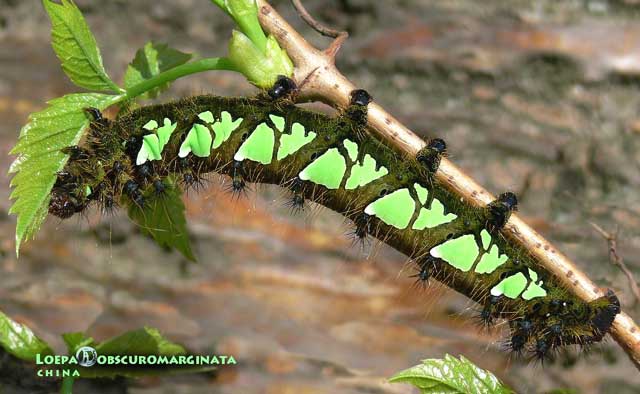
Loepa obscuromarginata fifth instar, courtesy of
Anatolij Kulak.
Dr. Kulak reports good success with larvae on
Vitis and Parthenocissus.
He writes, "I have given the some
Cissus antarctica and C. rhombifolia.
Result - 100% death rate."
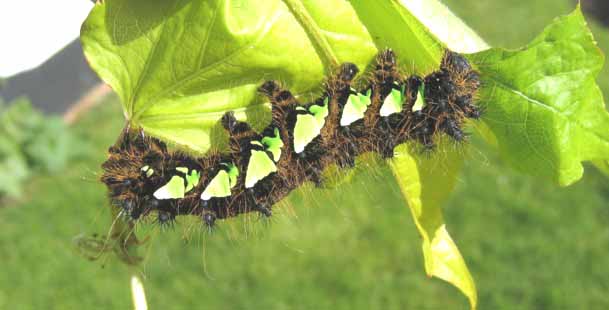
Loepa obscuromarginata, fifth instar, courtesy of Alan Marson.
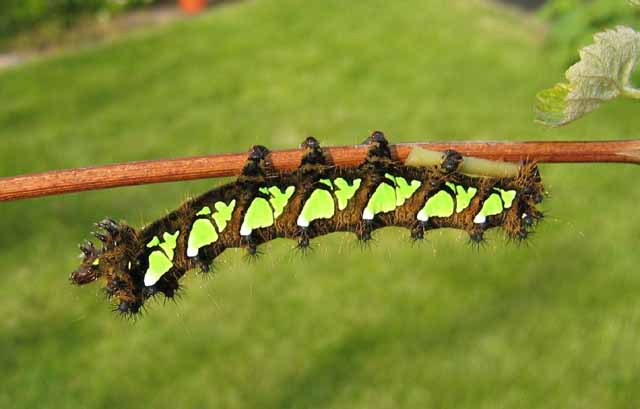
Loepa obscuromarginata, mature fifth instar, courtesy of Alan Marson.
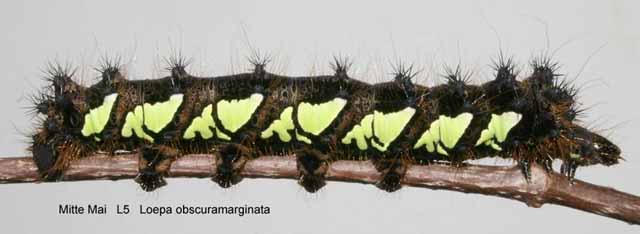
Loepa obscuromarginata, Sikangdong, 1600m; Ruyuan, East Guangdong,
courtesy of
Franz and Julian Renner
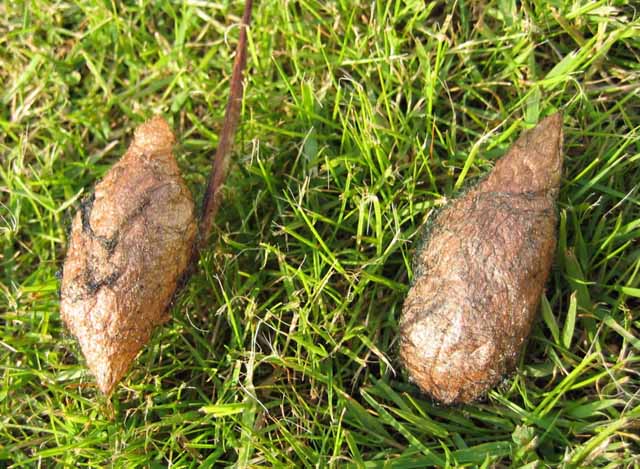
Loepa obscuromarginata, cocoons, courtesy of Alan Marson.
Larval Food Plants
It is hoped that this alphabetical listing followed
by the common name of the foodplant will prove useful. The list is
not exhaustive. Experimenting with closely related foodplants is
worthwhile.
Parthenocissus tricuspidata ......
Vitis
|
Boston Ivy
Grape
|
Use your browser "Back" button to return to the previous page.
Return to Loepa Index
Goto Asian Pacific Saturniidae Directory
Goto Main Saturniidae Index
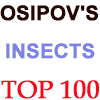
| 
Support this website and visit other insect sites by
clicking flashing butterfly links to left or right.
|

|























